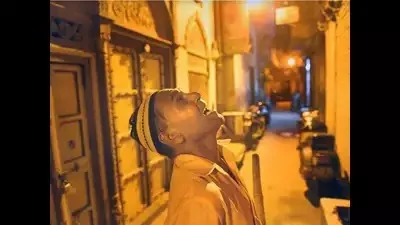Guardians of Tradition: Sustaining Centuries-old Practice Amidst Modernity’s Onslaught
Abdullah Salam
NEW DELHI – In the ancient quarters of India’s capital, Old Delhi, a time-honored custom unfolds yearly with the advent of Ramadan. As dusk descends, marking the onset of another day of fasting for Muslims, the Sehri Wallahs emerge onto the streets, their rhythmic calls slicing through the serene pre-dawn atmosphere. Often overlooked in the bustling urban landscape, these custodians of tradition play a crucial role in ensuring their community members are roused and ready for the sacred pre-dawn meal.
The practice of Sehri Wallahs finds its roots deeply entrenched in Old Delhi’s history. Passed down through generations, this venerable tradition epitomizes the enduring bonds of kinship and faith within the local Muslim community. With each passing year, as modernity encroaches upon the ancient city, the Sehri Wallahs stand as living relics of a bygone era, steadfastly upholding customs that have withstood the test of time.
One such guardian of tradition, fondly referred to as the Sehri Wallah, shares his story with pride. For decades, he has wandered the dimly lit alleyways of Old Delhi, his voice resonating with purpose as he calls out to his slumbering neighbors. In an age dominated by smartphones and alarm clocks, his role may seem archaic to some, but to those who hold Old Delhi’s heritage dear, his presence is a comforting constant amidst a swiftly changing environment.
Ramadan heralds a renewed sense of community and introspection, with the Sehri Wallahs serving as tangible reminders of these values for many Old Delhi residents. As highlighted in a report by The National, the month-long fasting period fosters deep camaraderie among locals, transcending barriers of age, class, and creed. During the predawn hours, as families gather around shared tables for the Sehri meal, the Sehri Wallahs are revered as custodians of tradition, their unwavering efforts ensuring that none miss out on Ramadan’s blessings.
Yet, alongside the reverence and nostalgia surrounding the Sehri Wallahs, lies a stark reality. Each passing year sees their numbers decline, with the pressures of modern life threatening to consign their ancient craft to oblivion. As noted in a feature by Mint Lounge, younger generations increasingly gravitate towards urban professions offering greater financial security and social advancement. The Sehri Wallah’s vocation, with its early hours and modest earnings, holds little allure for those seeking a more comfortable livelihood.
Despite these challenges, endeavors are underway to preserve the Sehri Wallahs’ legacy and safeguard their invaluable contributions to Old Delhi’s cultural fabric. Community leaders and heritage activists are tirelessly working to raise awareness about the significance of this age-old tradition, organizing workshops and cultural events to celebrate the Sehri Wallahs’ role in shaping the city’s identity.
As the sun ascends over Old Delhi’s labyrinthine streets, casting a golden hue upon its ancient monuments and bustling markets, the Sehri Wallahs’ legacy endures. In their melodious calls and unwavering dedication, they embody the timeless values of community, compassion, and devotion that lie at the heart of Ramadan. Amidst an uncertain future, the Sehri Wallahs stand as steadfast beacons of tradition, reminding us of the importance of honoring our past while confronting the challenges of tomorrow.

